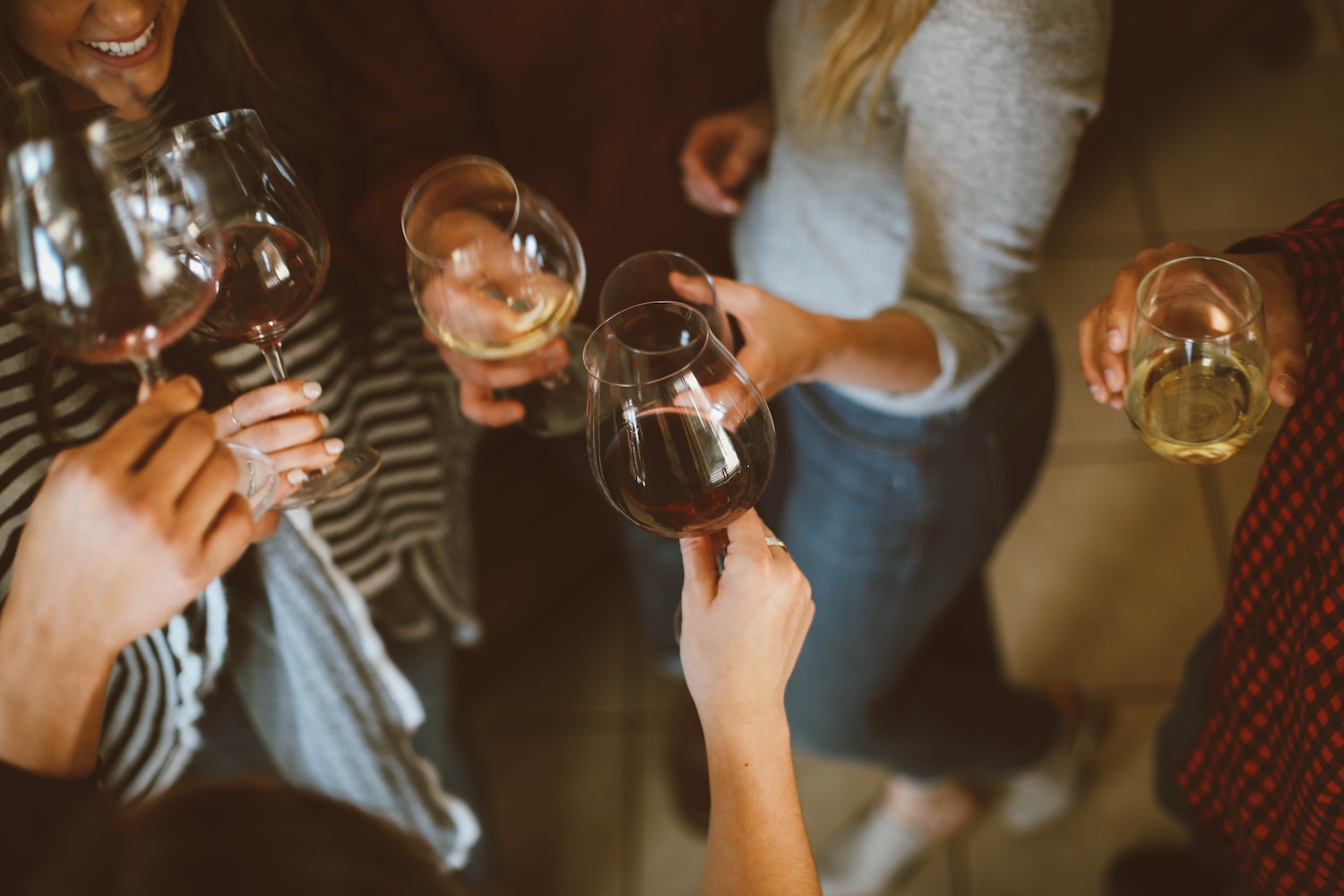Photo by Kelsey Chance via Unsplash
With the recent release of the latest “State of the U.S. Wine Industry” report and subsequent coverage in The New York Times-The Pour, Rob McMillan and Eric Asimov call out the $15 price point as key to attracting younger consumers to wine; however, value isn’t necessarily the sole requirement. When purchasing wine, Gen Z’ers also seek from their favored brands quality, sense of place, sustainability, and social responsibility. These family owned, female led wineries farm sustainably and partner with nonprofits to protect the environment and promote biodiversity, making each an ideal choice for socially conscientious consumers. And, with these selected wines, the price is definitely right.
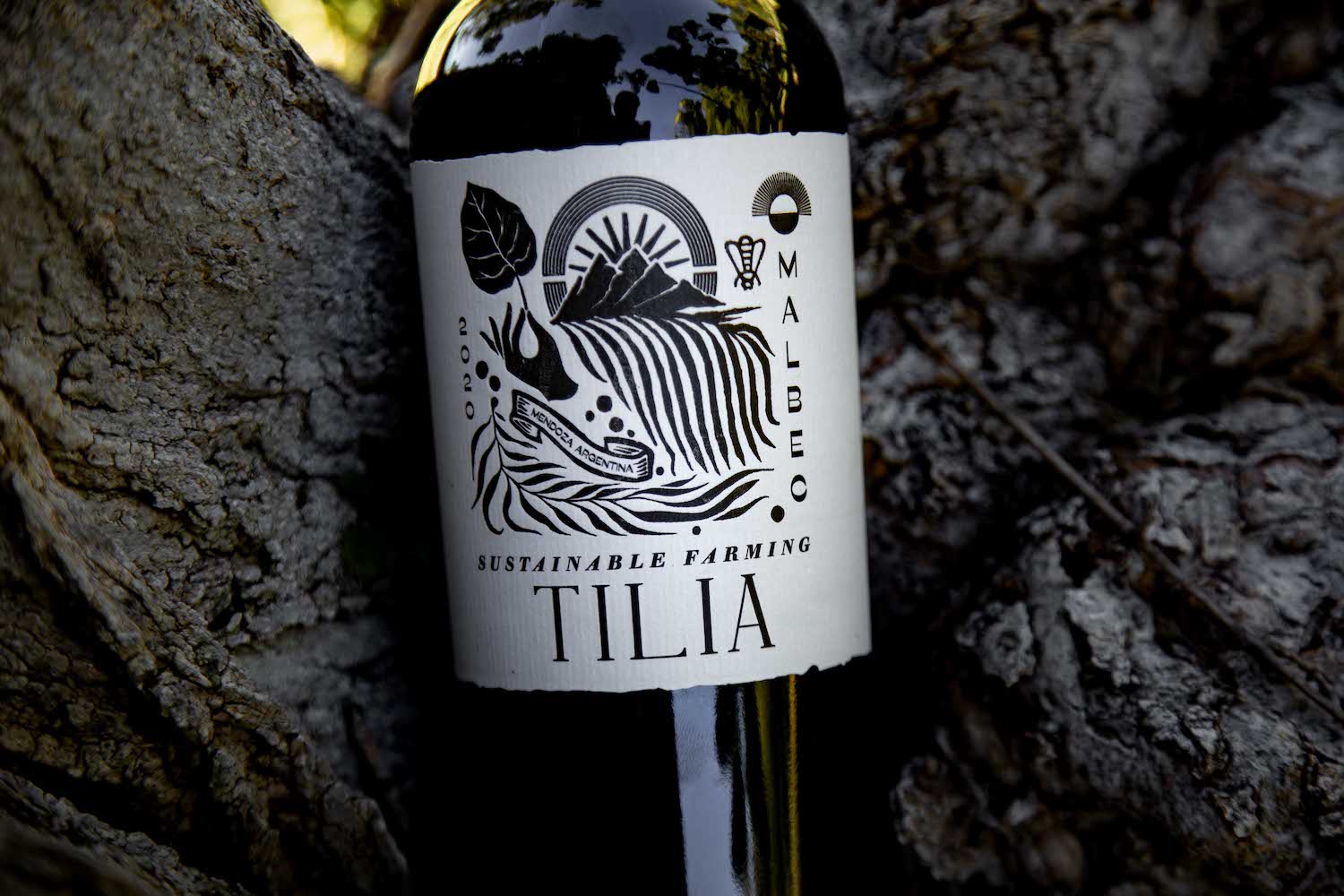
Tilia Malbec 2021 ($11) – Argentina
Tilia was the first winery to carry the Bodegas de Argentina (BdA) certified sustainability seal on the label, for its compliance to Argentina’s Sustainability Protocol. Among their many sustainability initiatives, they provide educational and social programs for the local community to thrive, such as offering the children of harvest workers summer school programs. This benefit has enabled 20% more women to work during harvest.
Quinta de Chocopalha Arinto Branco 2020 ($15) – Portugal
A pure expression of Arinto sourced from vineyards northwest of Lisbon, this refreshing white is vinified in stainless steel vats and aged for five months on the lees before bottling (to soften the bracing acidity of the Arinto grape). It’s made by Sandra Tavares da Silva, a true pioneer among Portuguese winemakers and one of the very first female winemakers in the Douro valley. Quinta de Chocapalha is her family’s property, jointly managed by Sandra, her sister, and their parents.
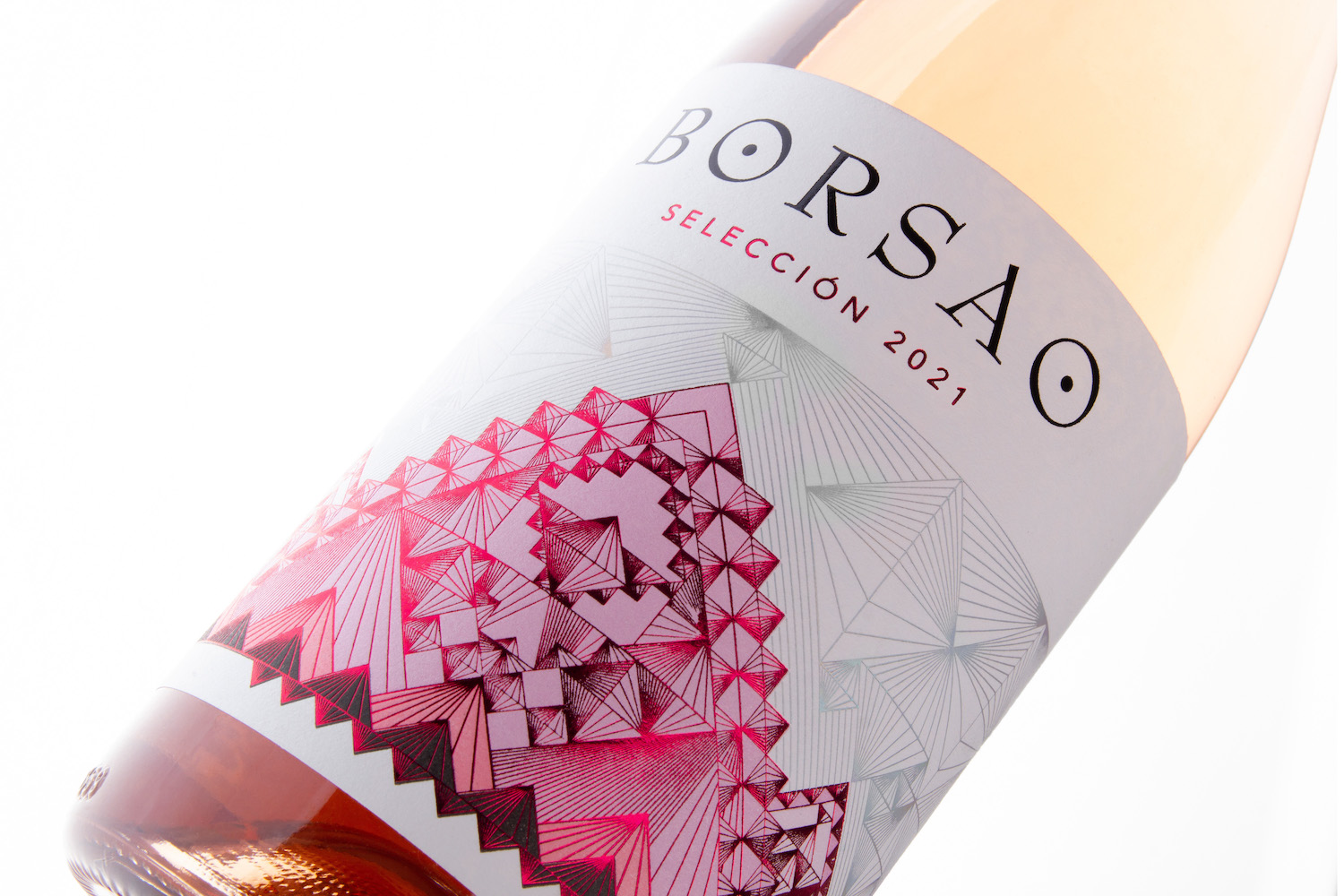
Bodegas Borsao Rosé 2022 ($11) – Spain
This crisp rosé from the Campo de Borja DO is made from 100% Garnacha. As of 2021, Bodegas Borsao is 100% powered by renewable energy, utilizing wind farms as well as solar panels. They represent hundreds of growers who are also shareholders. Recently, the winery reached out to them to see who would be interested in organic conversion. The winery was looking for enough growers to commit to 100 hectares of Garnacha – enthusiasm was so high that double the number of growers needed wanted to convert to organic.
Château de Fontenille Entre-deux-Mers Blanc 2021 ($15) – France
The vines of Château de Fontenille in Bordeaux have flourished on gravel terroirs since the 13th century. Hidden among the vineyards was a pilgrimage route to the neighboring Benedictine monastery, Abbaye de la Sauve Majeure, whose monks tended to the vines for hundreds of years. Today nearly 42 acres are dedicated to Sauvignon Blanc, Sémillon, Muscadelle and Sauvignon Gris varieties.
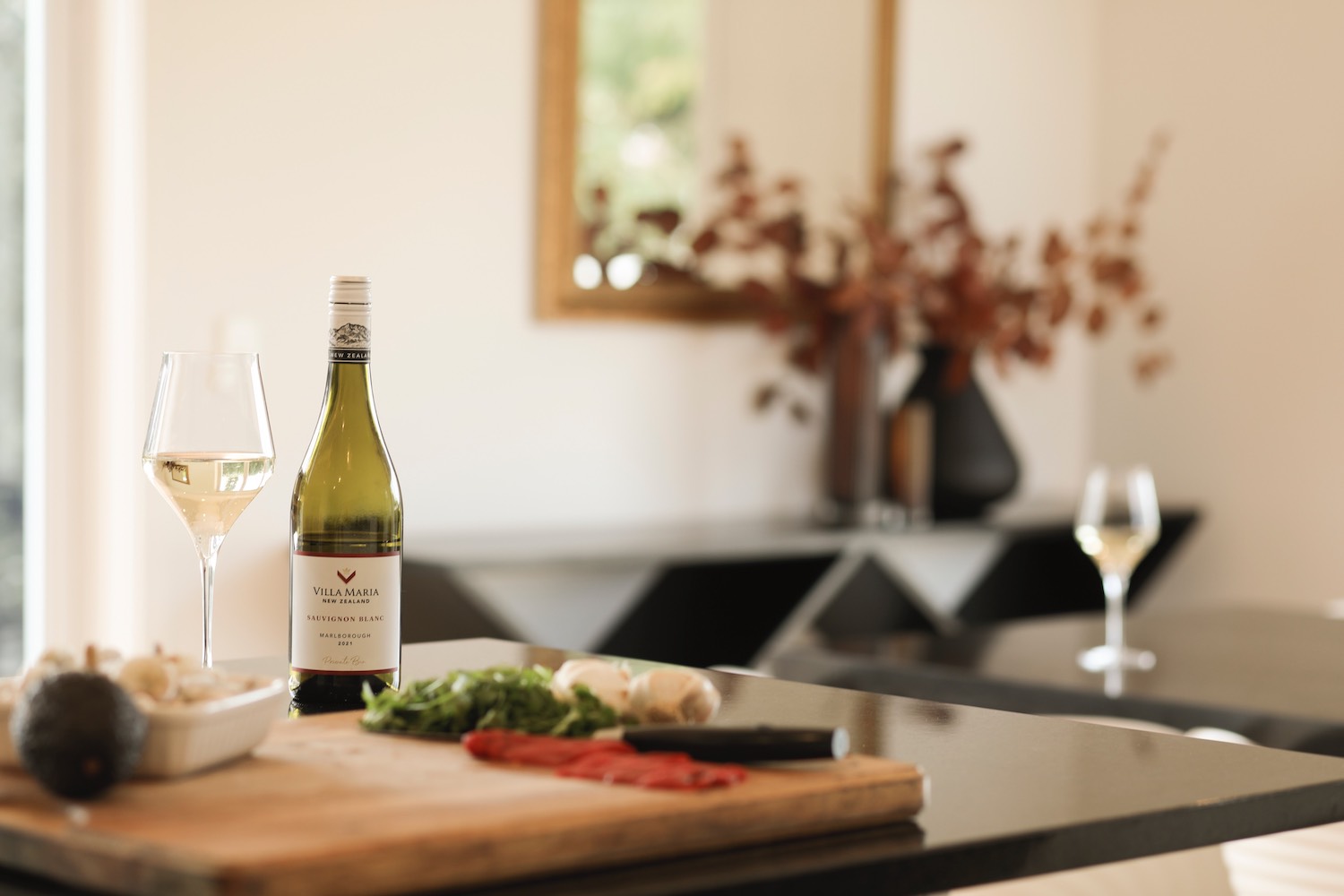
Villa Maria Private Bin Sauvignon Blanc 2022 ($15) – New Zealand
Sourced from vineyards across the Marlborough region, this intense Sauvignon Blanc is dominated by gooseberry, passionfruit, and fresh citrus aromas. A founding member of Sustainable Winegrowing New Zealand in 1997, Villa Maria has implemented numerous sustainability initiatives over the years, such as planting 700 kilograms of native wildflower species in their vineyards to improve soil health, and developing underground irrigation systems to be more efficient with water use. The winery is also a sponsor of the Billion Oyster Project, a nonprofit oyster reef restoration initiative in New York City.
Yalumba Y Series Viognier 2021 ($15) – Australia
Yalumba is Australia’s most historic family-owned winery, now in its 6th generation. They planted the country’s first commercial vineyard of Viognier in 1980, and have more than 40 years of experience working with this alluring aromatic grape. Since 2012, all Yalumba wines are 100% vegan. The winery’s chief winemaker, Louisa Rose, has become one of the world’s most respected winemakers.
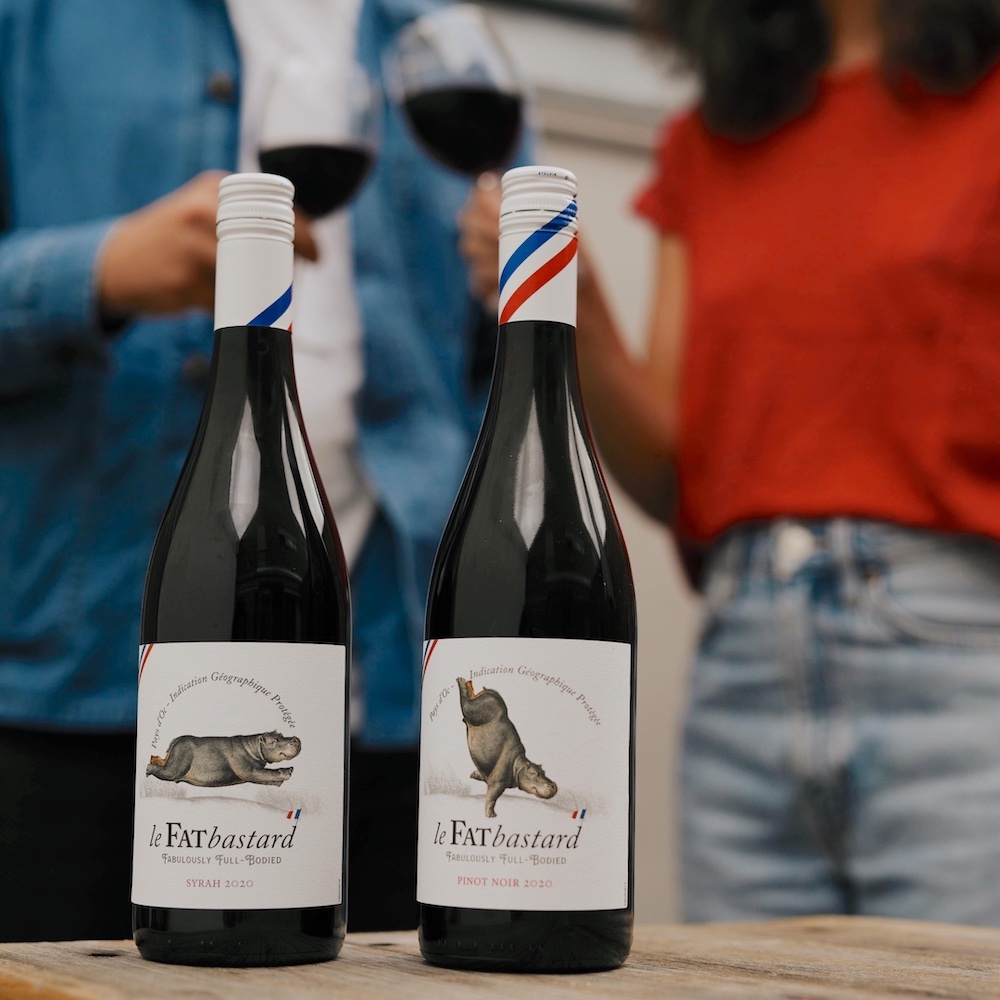
Fat Bastard Pinot Noir 2021 ($14) – France
Produced in partnership with Gabriel Meffre in the Languedoc-Roussillon region, the Fat Bastard wines are notably full bodied and fruit-forward in style. They’re made by Véronique Torcolacci, who obtained her degree in oenology from the University of Toulouse in 1991, at a time when there were very few women enologists. Veronique has been making wine for over two decades and regularly visits the Languedoc vineyards, meeting with growers and addressing sustainable development with them.
Librandi Ciro Rosso 2021 ($15) – Italy
For four generations now, the Librandi family has been committed to preserving indigenous vines in their native Calabria. They own a “varietal garden” that currently contains vines for about 200 varieties recovered throughout the region, arranged in a vineyard with a characteristic spiral shape. This wine is made entirely from Gaglioppo, the most important variety in the Cirò appellation. It is fermented and aged in stainless steel tanks to preserve the wine’s fresh, youthful character.
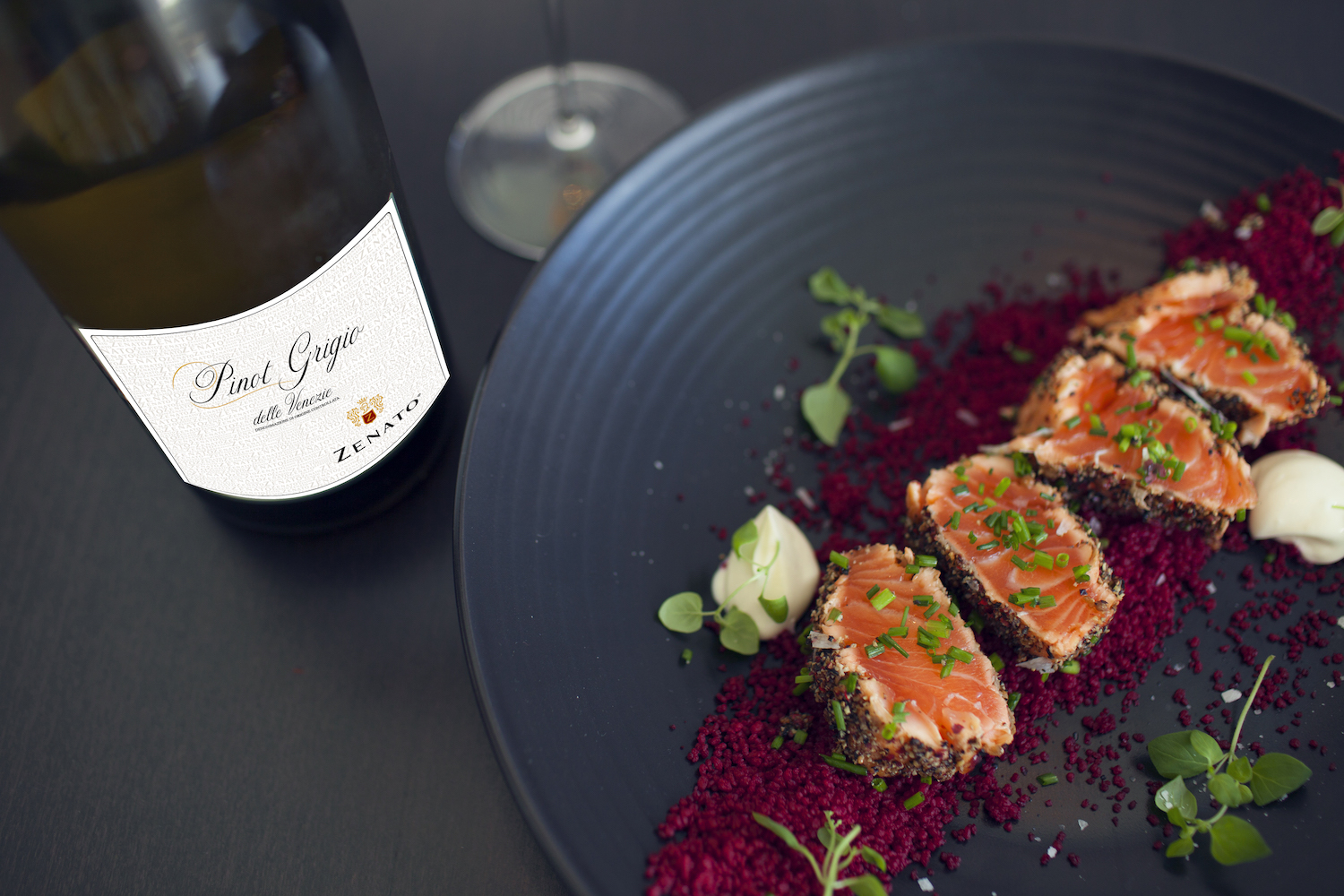
Zenato Pinot Grigio 2022 ($13) – Italy
Produced by a historic family winery renowned for their Amarone, this Pinot Grigio from the Veneto offers classic citrus and floral notes in a balanced elegant style. Nadia Zenato grew up playing in the vineyards and oversees the business today, while her brother Alberto is in charge of the winemaking.
Gai’a Monograph Moschofilero 2022 ($13) – Greece
Operating two different wineries, Gai’a (a reference to “Mother Earth” in Greek mythology) makes cutting edge wines in both Santorini and Nemea. This lively, intensely floral wine comes from come from vineyards located in the Arcadian plateaus in the Mantinia region of Peloponnese. The wines are made by Yiannis Paraskevopoulous, a professor of enology at the University of Athens, together with his daughter Leto.
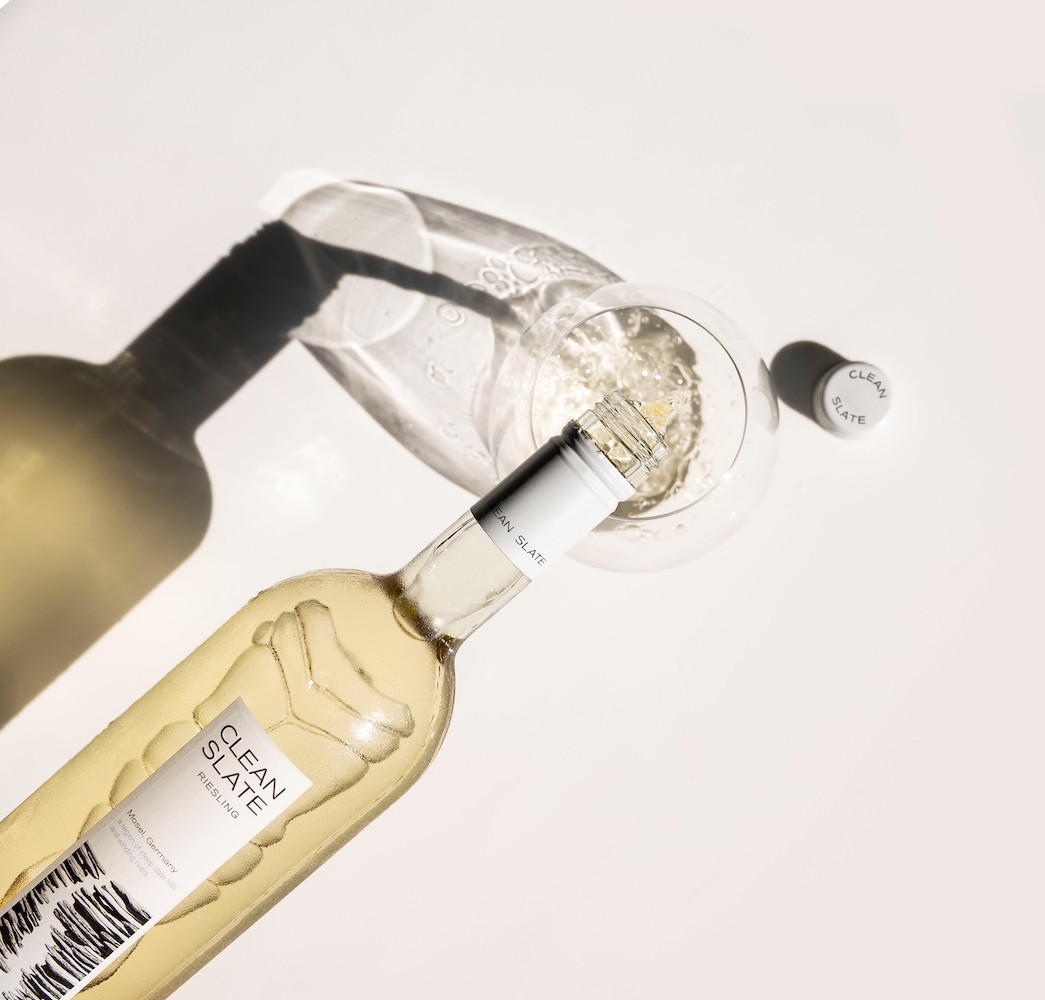
Clean Slate Riesling 2021 ($12) – Germany
Named for the thin slate soils of the Mosel Valley, this Riesling offers fresh peach, crisp lime, and subtle mineral flavors. Its relatively low alcohol (11%) and a hint of sweetness make it extremely versatile at the table.
Root:1 Cabernet Sauvignon Reserva 2019 ($13) – Chile
Root:1 is the first winery in Chile to be certified 100% sustainable by Wines of Chile, and the first winery in the country to adopt carbon offset measures. Energy conservation is a priority and water used in the winery is recycled for irrigation. In addition, every effort is made to preserve the surrounding native flora and fauna.
Photos provided by Winebow Imports

